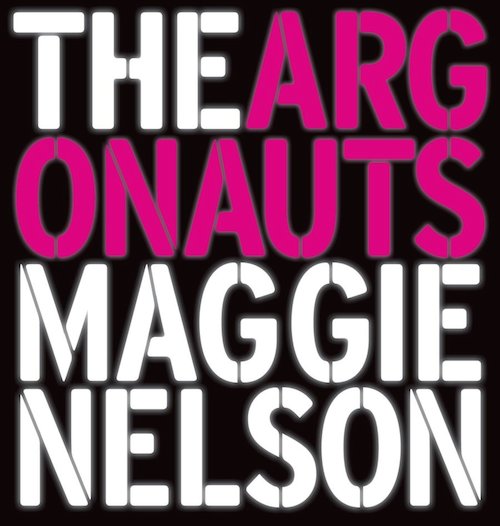Maggie Nelson Talks to Adam Fitzgerald at Lit Hub

At Lit Hub, poet Adam Fitzgerald interviews the inimitable Maggie Nelson about her new book, The Argonauts, just released from Graywolf. "Have we progressed as readers capable of seeing works in the multiplicity of their intention, modes of arrangement?" asks Fitzgerald. "Do the classical handles 'poet' or 'essayist' still interest you, or do you prefer 'writer' when you think of yourself?"
[Nelson:] ... I don’t think classical handles have ever held much interest for me, though “poet” can be lovely in the widest sense, the sense that someone like Eileen Myles or Alice Notley has insisted upon for it. I guess I feel there’s so much action beyond the genre conversation, often I feel honestly baffled as to why we spend so much time there. Maybe it’s an offshoot problem of MFA culture, I don’t know. My three favorite books of this past year—the undercommons (Moten/Harney), Testo Junkie (Preciado) and The Mausoleum of Lovers (Guibert)—seem to me good examples of where one might get to once one has renounced a certain stuttering on the question of genre.
Later, they discuss another inimitable writer, Eve Sedgwick:
Fitzgerald: Can you speak more to the continuing importance of Eve Sedgwick’s work for you? A dedication to her memory is at the back; you quote her throughout. A crucial instance for me: “Sedgwick wanted to make way for ‘queer’ to hold all kinds of resistances… that have little or nothing to do with sexual orientation.” The speaker in Argonauts experiences something of queerness’s vertigo with/through their partner’s identity, how that may or may not change/re-situate the self. Did part of that resistance mean that by writing about your family life you weren’t going to simplify the experience of loving someone “fluidly gendered”? Gay people, after all, can be as stubbornly restrictive with labels as straight people. And of course, I’m guilty of this myself; I remember first learning about Sedgwick’s orientation and how that seemed to color her work anew for me, almost offering another context to her studies as well as the intellectual ardor of her advocacy. Maybe the definition/limits of queerness itself—something I find you bravely questioning in The Argonauts.
Nelson: It’s funny because Eve was very open and available to many of my peers in grad school, who socialized with her and/or grew quite close to her, but I was not among them. Likely I was too intimidated; once the elevator at CUNY let out onto the street level, I typically ran back downtown. I did take two classes with her—one of which, “Non-Oedipal Models of Psychology,” is likely overtly and tacitly foundational to The Argonauts—but whatever intimacy I feel about her comes primarily from reading her writing, especially posthumously. Not long after she died I taught an entire seminar dedicated to her work, as well as to other thinkers who were primary to her. That was a really great, expansive time—and reparative, as Eve might say.
Eve’s early writings on the word “queer” arrived and circulated at a very different cultural moment; there are many people now, in academia and outside academia, who rightfully suspect the uncritical, trendy use of the word as just another scrim to obscure nefarious neoliberal crap. I have no doubt that is true, but I’ve never really had a horse in that race.
I am curious as to what you mean when you say that “learning about Sedgwick’s orientation… seemed to color her work anew for me, almost offering another context to her studies as well as the intellectual ardor of her advocacy.”
I guess I’ll say this, though it’s kind of a shot in the dark to see if I hit something in your question—people like Gayle Salamon (in her great book Assuming a Body) and others have been doing a lot of great recent thinking and writing about trans bodies and subjectivities, in which trans experience becomes a rich and productive lens for thinking about embodiment in general—i.e. EVERYONE’s embodiment, everyone’s complex phenomenological experience of living with/in gender(s)—this as opposed to focusing on the specific Otherness of being trans, which typically then gets positioned as non-normative, pathological, and/or congealed. I find this former line of thinking very enlivening, and I think it’s what Eve was also after, in her work on “queer” some time ago.
Please read all of this interview at Lit Hub.


